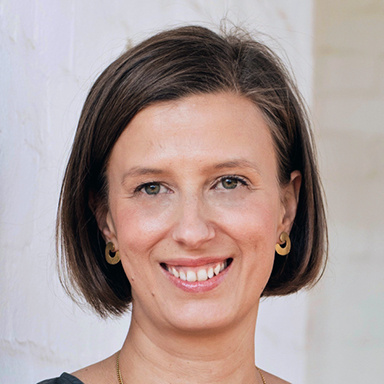Thanks to new technologies, breast cancer treatment is becoming more effective and less invasive.
Mediclinic Morningside specialist surgeon Dr Sarah Nietz explains more.
Seeing the difference empathy and kindness can make in a patient’s breast cancer journey is a source of genuine satisfaction for Dr Sarah Nietz. “Women are almost always frightened when they come to see me,” she says. “I can’t, unfortunately, change their diagnosis, but I can make their journey so much easier.”
Dr Nietz’s experience is impressive, to say the least: German-born and educated, she established and ran the Charlotte Maxeke Breast Unit between 2013 and 2019 before going on to concentrate on her private practice, where she now treats more than 300 newly diagnosed breast cancer patients every year. Her research record is equally formidable: Dr Nietz was the principal investigator for a Johannesburg site focusing on women living with both HIV and breast cancer; the largest prospective cohort studied in Africa to date. She’s served on various committees, including the Breast Interest Group of Southern Africa and the advisory team for the National Department of Health’s Breast Cancer Policy.
While studying towards her PhD on the quality of breast cancer care in South Africa, she still has time to mother her sons – aged three and five – and loves art, cooking and reading. “But don’t ask me to bake a cake – there’s a limit to what I can do!” she laughs.
Holistic treatment
Dr Nietz’s approachability has been a pillar to many of her patients, apart from the outstanding care she provides along with her multidisciplinary team. This includes no fewer than 26 experts, including:
- medical oncologists
- radiation oncologists
- plastic surgeons
- pathologists
- radiologists
- nuclear physicians
- genetic counsellors
- physios specialising in oncology recovery
- dietitians.
This multitude of skills ensures holistic treatment for each patient and creates a clear path forward – not only in terms of treatment and recovery, but to ensure a good quality of life long after. Research shows women who are treated by multidisciplinary teams have better outcomes, says Dr Nietz. “The quality of treatment a patient receives is intrinsically linked to their survival rate. However, this is also linked to early detection because the earlier we find the cancer, the more options we have in terms of treatment – and, often, if a tumour is found early on, treatment can be less invasive. That’s why we urge women to check their breasts regularly.”
She also advises women to ensure their doctor is part of a high-volume centre and multidisciplinary team, as this means they’ll have the right experience to provide the very best care.
Less is more
“The good news is that treatment options are changing all the time. Of course, cancer is not a uniform disease, so every woman’s journey is different – some may need chemotherapy, others may be treated successfully with hormonal therapy. However, in almost every area, we’re able to do less, or more precise, targeted treatment with better outcomes,” Dr Nietzsays. For example, most patients can now be offered breast-conserving surgery – especially if the cancer has been detected early. It’s also possible to shrink the lump before surgery, and in some cases, to combine surgery with cosmetic procedures such as breast reduction which, again, improves quality of life.
While mastectomies can be completely avoided in most cases, in instances where it is necessary to remove the breast, it’s often possible to save the entire envelope of the breast,including the nipple, with immediate reconstruction. Similarly, it’s no longer necessary to remove all lymph nodes, and sometimes surgery to the glands can be avoided altogether.
Radiation techniques have also changed, Dr Nietz explains, and careful planning can now help to reduce side-effects or shorten the length of treatment. “Even conventional chemotherapy is moving away from old regimens to more targeted therapies. Although some are relatively unaffordable now, they’re becoming increasingly available and will make an enormous difference. I believe that one day we’ll reach a point where we’re able to offer highly targeted treatment at a personalised level.”
Doctors 1


